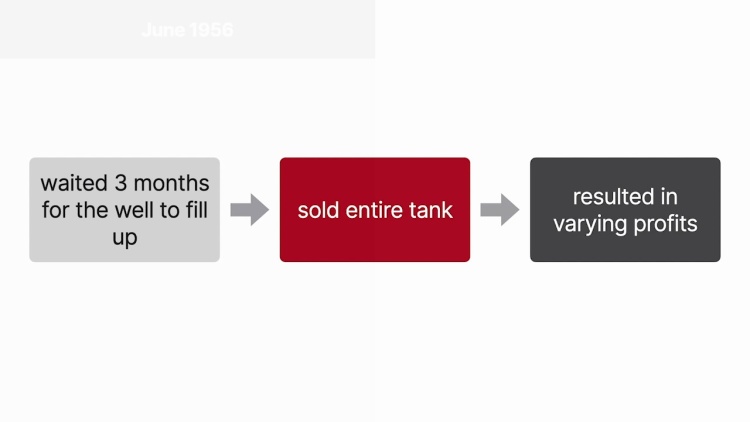Clifton v. Koontz
Texas Supreme Court
325 S.W.2d 684 (1959)

- Written by Sean Carroll, JD
Facts
Lillie Clifton (plaintiff) leased oil and gas rights to a third party. Koontz (defendant) acquired the rights after the primary term of the lease expired. Under its terms, the lease was subject to cancellation upon cessation of production after the primary expired. However, the lease provided that if reworking commenced within 60 days after cessation of production, the lease would not be subject to cancellation. In 1955, the well was profitable overall, even though some months were profitable and some were not. The reason for this fluctuation was that the lessees would have to wait for two or three months for the well to fill up, and then would sell the entire tank for a profit in that third or fourth month. Clifton presented evidence showing that from June 1955 through September 1956, the lease operated at a net loss. Koontz began reworking operations on the well on September 12, 1956. For the first six months of 1956, the well was profitable overall, despite suffering losses in certain months, as indicated above. Clifton brought suit seeking cancellation of the lease based on cessation of production. The trial court held that production in paying quantities had not ceased and thus declined to cancel the lease. Clifton appealed.
Rule of Law
Issue
Holding and Reasoning (Smith, J.)
What to do next…
Here's why 907,000 law students have relied on our case briefs:
- Written by law professors and practitioners, not other law students. 47,100 briefs, keyed to 996 casebooks. Top-notch customer support.
- The right amount of information, includes the facts, issues, rule of law, holding and reasoning, and any concurrences and dissents.
- Access in your classes, works on your mobile and tablet. Massive library of related video lessons and high quality multiple-choice questions.
- Easy to use, uniform format for every case brief. Written in plain English, not in legalese. Our briefs summarize and simplify; they don’t just repeat the court’s language.





